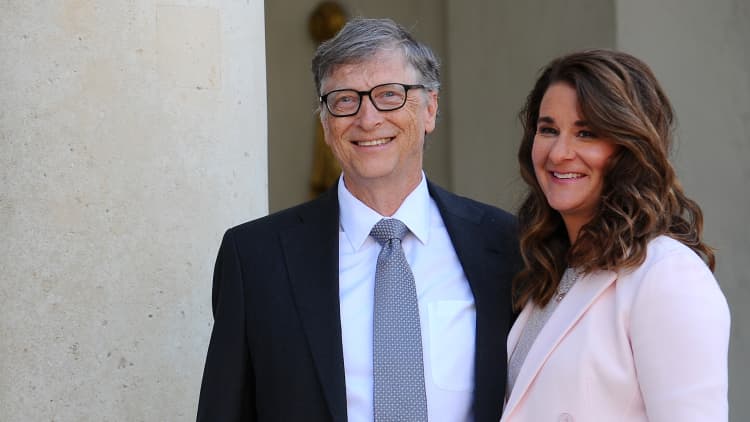Many people call Bill Gates their hero, but he says that his job is simple.
"In many ways, being a philanthropist is easy," he writes on his blog. "Although our foundation funds a lot of efforts to help improve the world, I sacrifice little compared to the people doing the hard work that makes progress possible."
Gates says that there are millions of others who are genuinely heroic.
"These and millions of other people like them are making a difference in our world. And while they may be too humble call themselves heroes, I can think of no better word to describe them," he writes. "Their lives inspire me. I hope they'll inspire you too."
Here are five of the regular people that Bill Gates says are saving the world.
Segenet Kelemu
When Dr. Segenet Kelemu was growing up in a farming village in rural Ethiopia, she saw a swarm of locusts wipe out all her village's crops. "I'd observed how the people around me spent their time concerned with how to feed themselves," she said in an interview with The East African. "So I felt a calling to do something to help."
Kelemu became the first woman in her region to go to college, and went on to earn a Ph.D. in Molecular Plant Pathology. Today, she is the Director General and CEO of the International Center of Insect Physiology and Ecology (ICIPE).
Through her work with ICIPE, Kelemu harnesses science to make sure that farmers can protect their crops, grow more food and make more money.
Mathew Varghese
Even though polio was eliminated from India in 2011, thousands of people still struggle with the lasting impact of the disease. Dr. Mathew Varghese runs India's last and only polio ward, where he and his team treat polio patients and help them to walk again.
Varghese says that he loves his work. "That ability to change something for someone gives so much joy. I don't think anyone is as happy as I am," he says. "The dignity of being able to stand on two legs, albeit with braces, that makes a huge difference."
Holding back tears, the doctor explains, "Accessing even the free healthcare in our communities is so difficult. These are marginal existence societies. They are on the edge."
"In the 80's, every day 500 to 1,000 children across India [were] paralyzed," he says. "People like me will still be required to take care of them, for a long time to come. But I can die peacefully [knowing] that in the future, maybe they'll be no need for a polio ward."
Ada Okoli
Ada Okoli was a young doctor caring for patients in Lagos, Nigeria when she learned that she and nine of her colleagues had contracted Ebola.
"I was infected with Ebola. I felt panicked," she says. "You don't know if it's going to end with your death and you fear for those that are outside who you might have possibly infected. But I survived."
Okoli saw her second chance on life as an opportunity to educate others about infectious diseases like Ebola.
"I thought to myself, 'Well you have to go back to school.' I came to Tulane University to study infectious disease and epidemiology," says the doctor. "I see myself teaching about outbreaks and epidemiology and how to contain an outbreak and what to do when you have a patient that has an infectious disease."
"Her courage and her optimism are inspiring," says Gates.
Anna Rosling Rönnlund
Gates says that Swedish social-entrepreneur Anna Rosling Rönnlund is also a hero of his. As the co-founder of Gapminder, Rosling Rönnlund uses art and photography to help people understand global data.
One of her projects, Dollar Street, visualizes global wealth levels by showing images of over 150 household items in countries all over the world.
"People hate data even if you make them colorful and moving," says Rosling Rönnlund. "But if you use photos there is a slight passage you can reach their brain."
"Thanks to her efforts we can see ourselves and our world more clearly," says Gates.
Camille Jones
Camille Jones, 2017 Washington State Teacher of the Year, returned to her rural hometown of Quincy, Washington, in order to have a lasting impact on her community through hands-on science learning.
Jones leads a STEAM lab at Pioneer Elementary. Even though Pioneer is considered a "high-needs school," every student gets a chance to learn in Jones' high-tech classroom. Students as young as 5 learn how to solve difficult math problems, collaborate on complex engineering projects and answer complicated scientific questions.
According to Gates, her work inspires young people to work hard and dream big. One of her students, second-grader Marco Landazuri, says, "As long as you don't give up, there's always a way."
Like this story? Like CNBC Make It on Facebook!
Don't miss:



